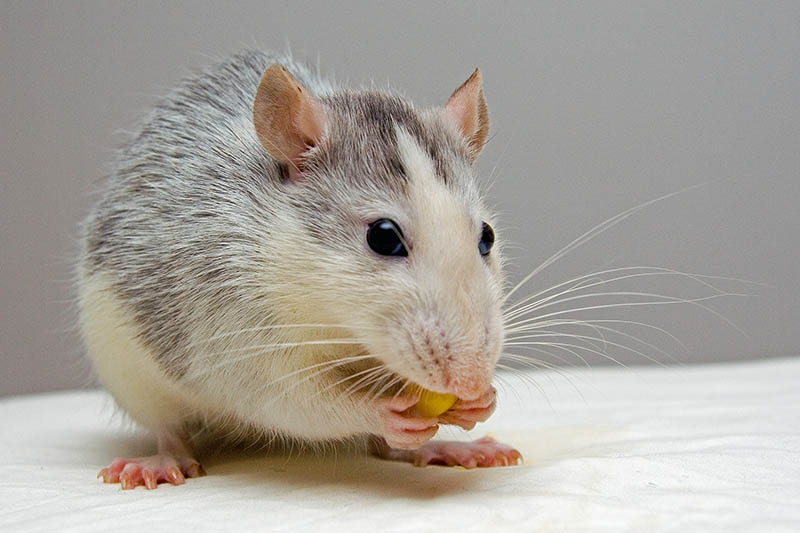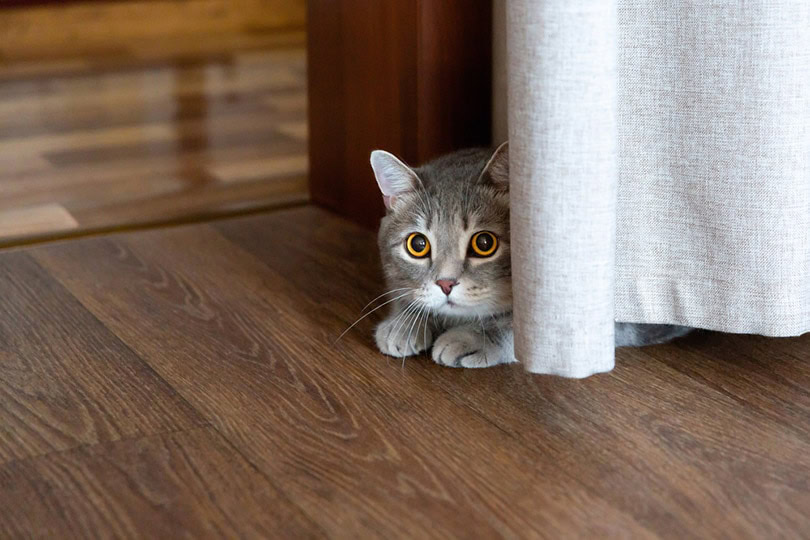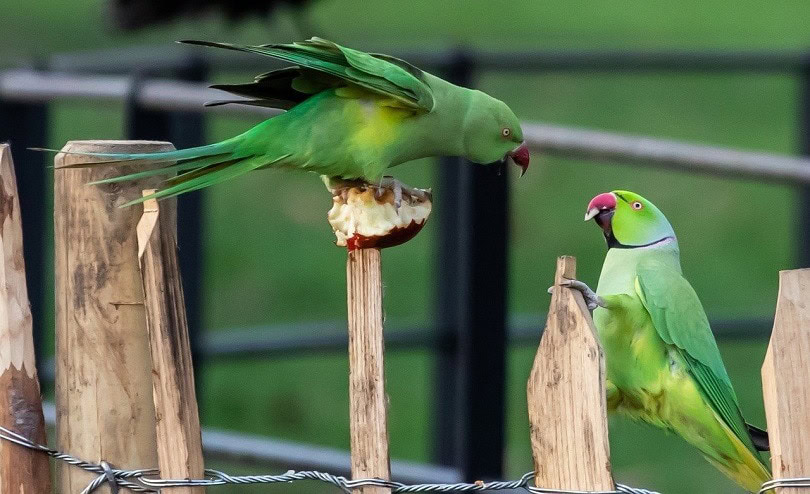Urban wild rats are often considered pests, but domesticated rats can be great companions for humans of all ages and lifestyles. Rats are smart, friendly, and playful. Most pet rats like to hang out with their human companions in close proximity. Many even like to cuddle — at least occasionally. Rats also tend to make noises that can serve as an extra form of communication. For example, you may have heard that rats can purr. While rats don’t technically purr the way that cats do, they do make a noise and create a vibrating sensation that can be perceived as purring. Find out more here.

Rats Don’t Technically Purr But They Sound Like They Do
Rats can make a purring sound and vibrating sensation by lightly grinding their molar teeth together. The noise doesn’t sound exactly like a purring cat, but it is certainly reminiscent of that. The act is referred to as “bruxing,” and it does not hurt the rat or indicate danger to humans. It may, however, take new owners off-guard when they hear and feel “bruxing” for the first time.
Rats typically accompany bruxing with something that is called boggling. This is when it looks like their eyes slightly bulge and then slightly retract, multiple times in a row. Boggling can be tough to spot until you get used to the activity and what it looks like.
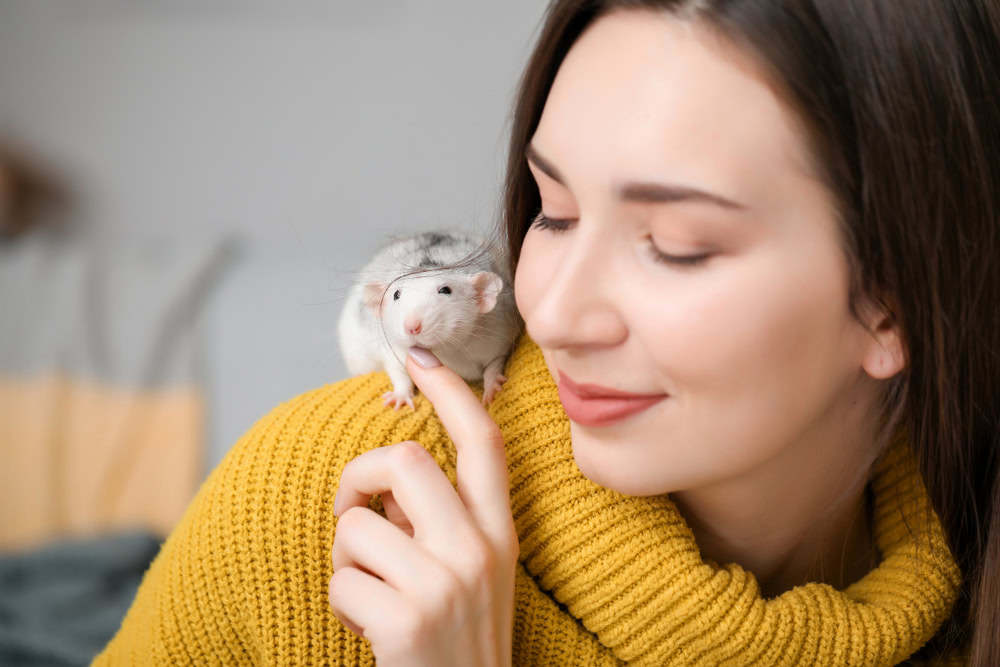
What Does Rat “Purring” or “Bruxing” Mean?
It is believed that the reason rats brux is to show their contentment. You should notice that the action happens most often when you’re holding or cuddling with your pet rat. You likely will not see or hear a wild rat bruxing, as they would only do it in their nests, where they feel safe and comfortable.
Bruxing, or “purring,” does not happen every time a rat experiences cuddling or close contact. So, don’t worry if you don’t hear or feel your rat doing it when you’re spending quality time together.
Other Sounds That Rats Make and What They Mean
There are many sounds that rats can make. Each sound can mean different things, and you should know your companion rat well enough to understand their communication. Here are the rat sounds to be aware of:
- Squeaks: Rats can squeak in many different tones, some of which we cannot hear with our own ears. Squeaking can happen when a rat is excited, scared, full of energy, or intimidated, to name a few reasons.
- Chirps:Rats tend to chirp like a bird, apparently when they feel happy and comfortable. That said, chirping may also be a sign of anguish or high alertness.
- Hisses:A hissing rat is usually a sign that the animal is warning against a predator, which could be anything from a bright light that suddenly goes on to you walking into a space that they are in. When a rat produces this sound, they often stand on their hind legs and lunge in to bite.
- Scratching: Scratching sounds usually come from rats that are trying to get into something.
- Scurrying: Another sound that rats can make is a scurrying noise. You will most likely hear this sound when rats (pets or wild) are literally scurrying around on the ground, as well as over and around objects.
- Gnawing:Rats gnaw on things to keep their teeth worn down. You should ensure that your pet rat has appropriate chew items (including some food items they can chew) in order to ensure that their teeth remain healthy.
Do keep in mind that most of a rat’s noises are inaudible to us, as rats also possess the ability to vocalize using ultrasonic calls, which we cannot hear. Because most of the sounds a rat produces are inaudible to us, it is thought that sounds we do hear are only produced during periods of either extreme excitement or distress. As such, it’s often best to approach a rat you may hear with caution!
In addition, these sounds can be attributed to many types of animals, not just rats. So, if you have other pets, you might need to figure out which individual(s) are producing the sounds you hear.
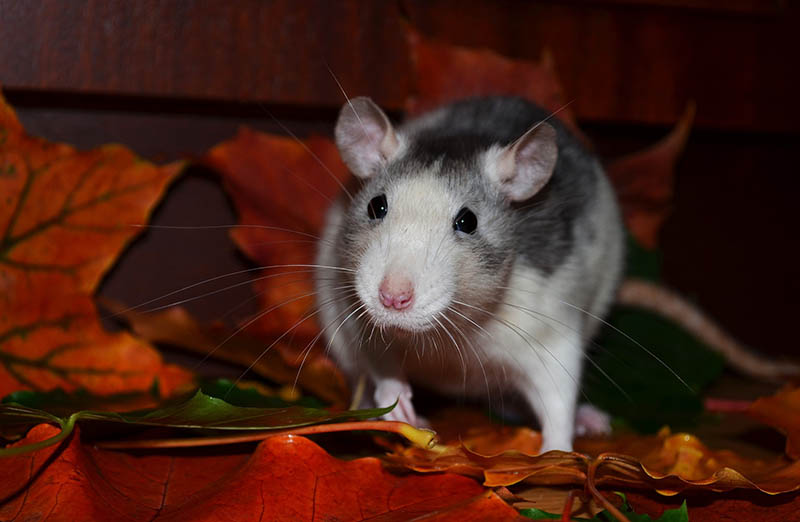

Final Thoughts
Rats make many noises. They can even “purr” like cats, but the process is not the same, and the effects can vary from animal to animal. If your pet rat is safe, comfortable, and making a “purring” noise, you can rest assured that they are happy and content in your presence.
- See also: Do Pet Mice Hibernate?
Featured Image Credit: jarleeknes, Pixabay
